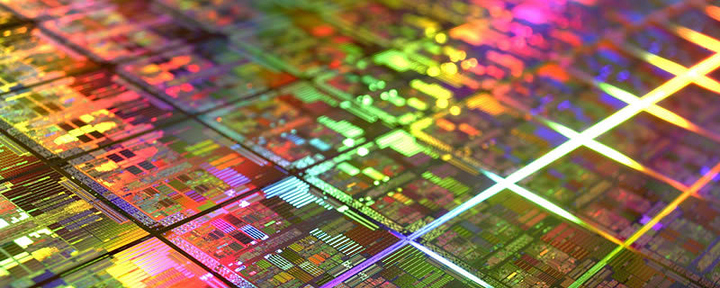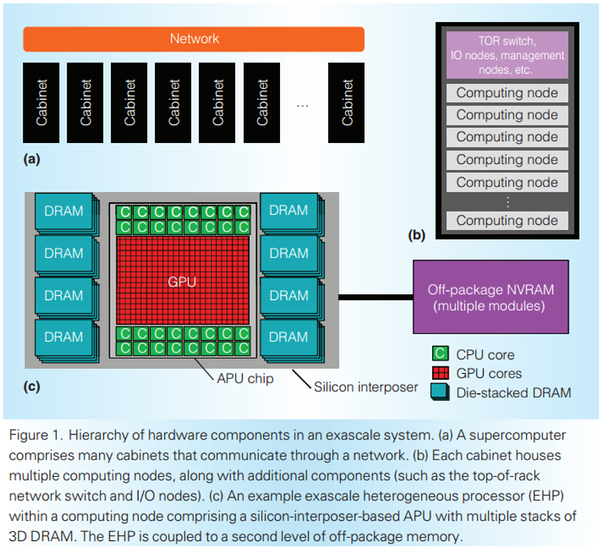AMD to make Exascale HSA Enabled Supercomputing chips
AMD to make Exascale HSA Enabled supercomputing chips, which may be the future of efficient supercomputing.
As many of you know power is not an infinite resource and every computer chip has it's own thermal limit, with that in mind modern supercomputers mainly are built with efficiency in mind, not just overall performance. one of the main ways of increasing efficiency is to place workloads onto suitable hardware, with highly parallel computing tasks being mostly moved to GPUs and more less parallel tasks being used on traditional CPUs.
AMD believe the future is in HSA, Heterogeneous Computing, where tasks can be completed CPU and GPU hardware at the same time, allowing both types of hardware to work much more effectively by moving workloads to the most suitable piece of hardware while utilizing a unified pool of memory.
A paper detailing this future can be found here, but sadly requires a subscription. Here is a quote form the paper.
“Hardware optimized for specific functions is much more energy efficient than implementing those functions with general purpose cores. However, there is a strong desire for supercomputer customers to not have to pay for custom components designed only for high-end HPC systems, and therefore high-volume GPU technology becomes a natural choice for energy-efficient data-parallel computing.”
Inside this paper we see this, a model for a future chip which will contain 32 CPU cores and a very large GPU die, all connected to HBM (Die-Stacked DRAM) on a silicon interposer. It is likely that this chip will have 32GB of HBM 2.0 memory, with off package RAM available to the chip when required.
This chip will be most likely utilizing CPU cores using AMD's new Zen architecture, which will be AMD's all new architecture which will feature great gains in both per core performance and CPU efficiency.
Right now it is unknown when AMD will be creating this chip, or any similar design, but it is expected that they will be creating working samples in the 2016-2017 timeframe, with availability of this chip coming sometime before or during 2020.

